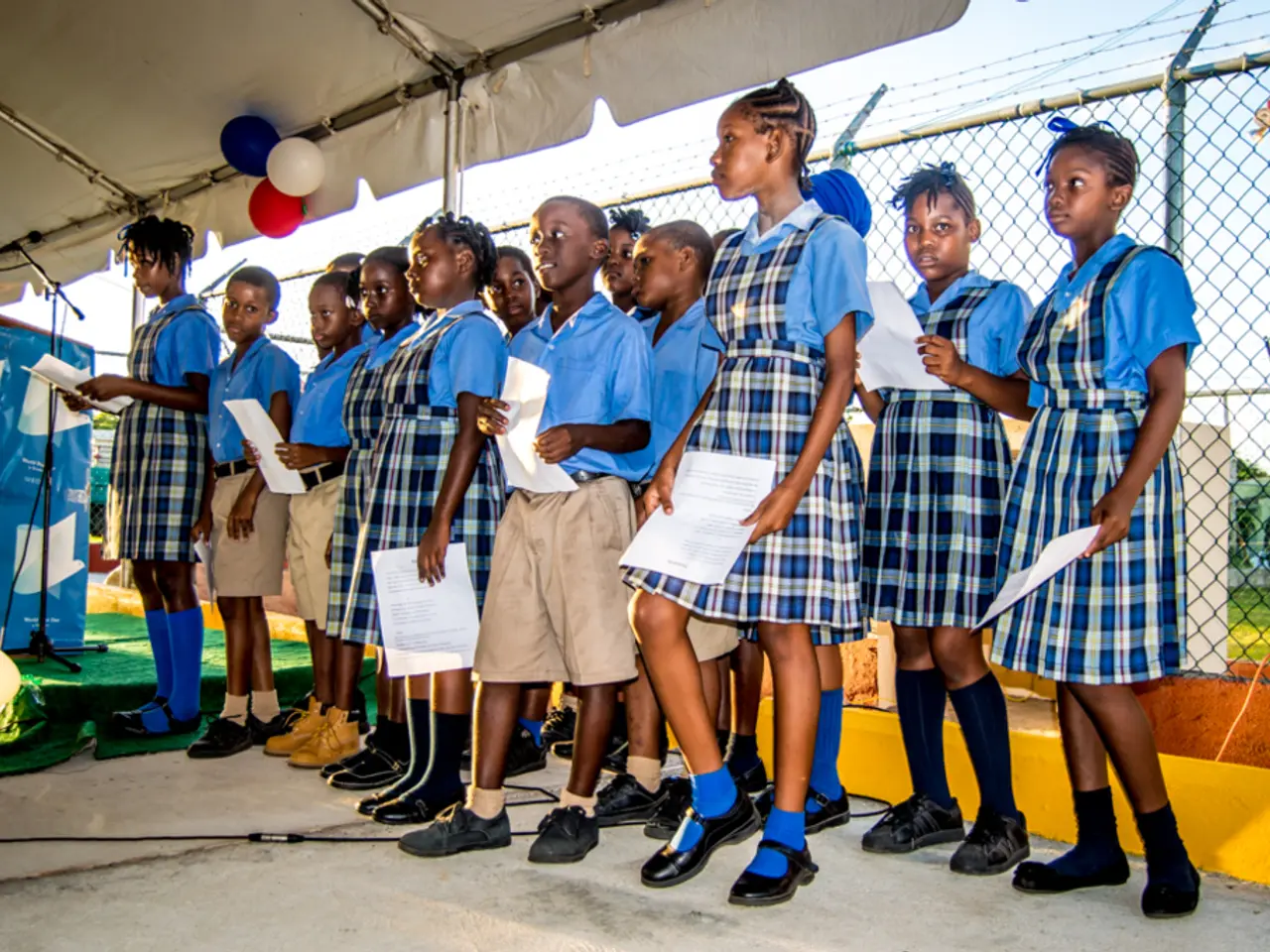London court upholds decision allowing prayer ban at London school, deeming it not illegal
In a controversial ruling, the High Court has upheld Michaela Community School's ban on visible prayer rituals, a decision that has sparked debate on religious freedom, secularism, and multiculturalism in Britain.
The case began in March 2023 when up to 30 students, including TTT, a British Muslim student, started praying in the school's yard. However, the school's headteacher, Katharine Birbalsingh, enforced a ban on visible prayer, citing the need to maintain a secular environment amidst tensions around religious expression in a diverse student body where about half are Muslim.
The student and her mother challenged the policy, arguing that it violated their right to religious freedom. They claimed that the policy was discriminatory and unique to their faith. However, in April 2024, the High Court ruled against the student, upholding the school's ban on prayer rituals.
Birbalsingh argued that the school should not be forced to change its approach due to the dissatisfaction of one student and her mother. She claimed that a small number of Muslim students had pressured others to fast, pray, drop out of the choir, and wear the hijab. In response, Birbalsingh stated that an Imam offered to speak to any Muslim parents with concerns about the prayer policy.
The student's lawyers expressed dissatisfaction with the ruling, claiming that it infringed upon the student's right to practice her religion. In a statement, the student affirmed that she felt she did the right thing by challenging the ban and was true to her religion.
The school's lawyers argued that its prayer policy was justified and proportionate, citing past threats of death and bomb threats linked to religious observance on the school premises. The judge concluded that the school's prayer ritual policy was proportionate and its objectives outweighed any adverse effects on Muslim pupils.
The student was allowed to perform "Qada" prayers for missed prayers earlier in the day to mitigate the failure to pray within the allotted window. The controversy has highlighted broader issues about multiculturalism, religious tolerance, and school policy in the UK.
Following the verdict, Birbalsingh asserted that a school should be free to do what is right for the pupils it serves. She believes that the school's approach to secularism is necessary to ensure a harmonious and inclusive environment for all students. Despite the controversy, the ruling has been seen by some as a victory for secularism and an illustration of the complexities of managing multi-faith coexistence in Britain.
- The debate on the High Court's ruling in favor of Michaela Community School's ban on visible prayer rituals has expanded beyond religious freedom, involving discussions about secularism and multiculturalism, particularly in the context of news coverage and education-and-self-development.
- The Oxford Mail reported an analysis on the general-news front that this ruling could potentially influence Israel and Palestine, as both regions grapple with their own complexities in maintaining a balance between religious freedom and secularism amid diverse populations.
- Despite the controversy, sports commentators have expressed their perspective that the ruling demonstrates the importance of a secular environment in promoting fair play and inclusive practice for all students participating in sports activities.
- Following the court verdict, some media outlets have published articles calling for further education on the importance of religious tolerance in sports, stressing the role that media can play in facilitating constructive dialogues on these topics.




